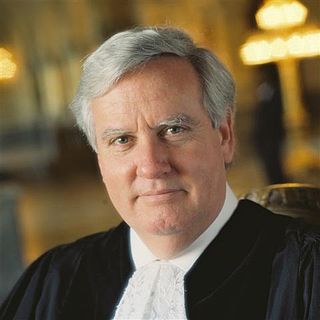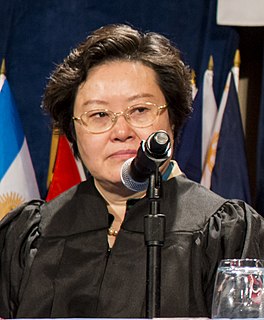Background
The International Court of Justice (ICJ), based in The Hague, is one of the principal organs of the United Nations. Also known as the World Court, it adjudicates legal disputes between states, and provides advisory opinions on legal questions submitted by other UN organs or agencies.
The court consists of 15 judges, with five judges elected every three years. (In the case of death or other vacancy, a judge is elected for the remainder of the term.) Judges are required to be independent and impartial; they may not exercise any political or administrative function, and do not act as a representative of their home state.
Elections of members of the Court are governed by articles 2 through 15 of the Statute of the International Court of Justice.
The five judges whose terms expired in February 2012, with their nationality, were:
- Abdul G. Koroma (Sierra Leonean)
- Hisashi Owada (Japanese) (president of Court at time of election)
- Bruno Simma (German)
- Peter Tomka (Slovak) (vice-president of the Court at time of election)
- Xue Hanqin (Chinese)
Of these five, all except Bruno Simma were candidates for re-election.
Another sitting judge, Awn Shawkat Al-Khasawneh, also left the ICJ, having been appointed prime minister of Jordan in October 2011. [4] The election to fill that seat was not scheduled until 2012. [2]
Election procedure
The General Assembly and the Security Council proceed, independently of one another, to elect five members of the Court.
To be elected, a candidate must obtain an absolute majority of votes both in the General Assembly and in the Security Council. The words "absolute majority" are interpreted as meaning a majority of all electors, whether or not they vote or are allowed to vote. Thus 97 votes constitute an absolute majority in the General Assembly and 8 votes constitute an absolute majority in the Security Council (with no distinction being made between permanent and non-permanent members of the Security Council).
Only those candidates whose names appear on the ballot papers are eligible for election. Each elector in the General Assembly and in the Security Council may vote for not more than five candidates on the first ballot and, on subsequent ballots for five less the number of candidates who have already obtained an absolute majority.
When five candidates have obtained the required majority in one of the organs, the president of that organ notifies the president of the other organ of the names of the five candidates. The president of the latter does not communicate such names to the members of that organ until that organ itself has given five candidates the required majority of votes.
After both the General Assembly and the Security Council have produced a list of five names that received an absolute majority of the votes, the two lists are compared. Any candidate appearing on both lists is elected. But if fewer than five candidates have been thus elected (as happened in 2011), the two organs proceed, again independently of one another, at a second meeting and, if necessary, a third meeting to elect candidates by further ballots for seats remaining vacant, the results again being compared after the required number of candidates have obtained an absolute majority in each organ.
If after the third meeting, one or more seats still remain unfilled, the General Assembly and the Security Council may form a joint conference consisting of six members, three appointed by each organ. This joint conference may, by an absolute majority, agree upon one name for each seat still vacant and submit the name for the respective acceptance of the General Assembly and the Security Council. If the joint conference is unanimously agreed, it may submit the name of a person not included in the list of nominations, provided that candidate fulfills the required conditions of eligibility to be a judge on the ICJ.
If the General Assembly and the Security Council ultimately are unable to fill one or more vacant seats, then the judges of the ICJ who have already been elected shall proceed to fill the vacant seats by selection from among those candidates who have obtained votes either in the General Assembly or in the Security Council. In the event of a tie vote among the judges, the eldest judge shall have a casting vote. [3] ![]() This article incorporates text from this source, which is in the public domain : United Nations document A/66/182–S/2011/452
This article incorporates text from this source, which is in the public domain : United Nations document A/66/182–S/2011/452










